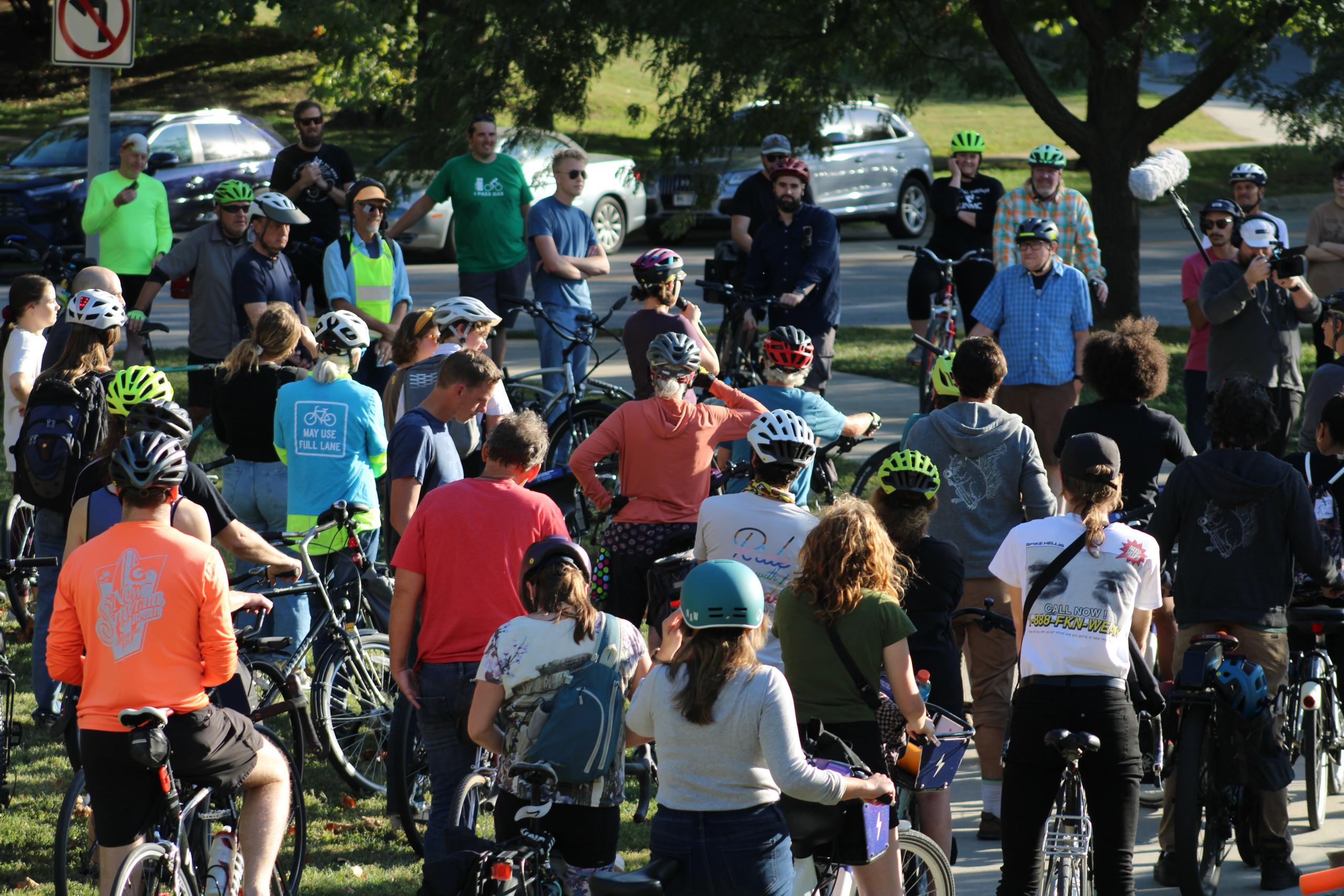When riding Bus Rapid Transit (BRT), users need more than just a bench and shelter at stations. Many users of public transit ride bicycles to and from stations. Users need viable options to load the bicycle on the bus and securely park their bicycle at a station. They also need well-connected bicycle routes and easy access to bicycle sharing programs.
Bikes On Board
Since 2008, a lot of people have used Metro’s bike & ride racks to load their bike on the front of Metro’s buses free of charge. This is a fantastic option for many commuters or anyone who wants to take his/her bike on the bus across town. Metro’s current policy is that if the rack (which holds two bikes) is full, the rider may not bring the bicycle on board the bus. As not all stops have secure bike parking, many riders must wait for a bus with space on the rack.
The rack is on the front of the bus and requires riders to flip down the rack, then load and secure the bike before boarding. This solution slows down the boarding process, which if used with BRT would work against the “rapid” in BRT. All users would be better served if Metro included the equipment to allow riders to stow bicycles on board. Many cities have adopted this policy and use varying types of interior bike racks.
For example, the Utah Transit Authority in Salt Lake City began installing vertical bike racks on their Siemens S70 articulated buses this year. This rack is installed in a space not normally used as seating, but racks could be installed in combination with seating areas to be used in times of low passenger volume as well.
Secure Bicycle Parking
Some may not want to bring a bicycle to the office, grocery store, or wherever they are going, so secure bicycle parking is needed near BRT stations. TransFort in Fort Collins offers Bike n’ Ride shelters for a minimal annual cost with a small refundable deposit. Two shelters exist currently and there are plans to expand in 2016.
Metro in Los Angeles offers bike lockers at many stations throughout their service area. For a $24 six-month contract, riders can store bikes securely in individual lockers.
LA’s Metro also has one Bike Hub and plans to open up two more locations. The Bike Hub is staffed daily, has on-call mechanics, and 24/7 secure indoor parking for over 50 bikes. Costs to use the Bike Hub range from $5 for 7-day passes to $60 annually. A facility such as this would be a fantastic resource to people on bikes. It could be constructed, for example, near the 84th or 72nd Street stations to serve both Park & Ride and Keystone Trail users.
Connectivity
For the Omaha BRT to be effective for people on bikes, stations need bicycle-friendly connectivity. We have rated the proposed stops based on surrounding bicycle-friendly infrastructure. One immediate observation is that the conditions are especially poor west of 72nd, with difficult access to trail systems, bikes lanes, and roads with sharrows. An even greater obstacle for people riding a bicycle is crossing I-680. Better bicycle connectivity to Westroads, as well as around 84th and/or 72nd Streets, would allow people riding bikes to more safely connect with the BRT west of 72nd.
Having more bicycle-friendly infrastructure around BRT stations also increases use of bike sharing programs. The Program Director at Heartland B-Cycle, Benjamin Turner, has indicated he hopes to have B-Cycle at five BRT station locations or more.
In summary, the Omaha BRT corridor has great potential to have bicycle-friendly onboard bike racks, secure parking at stations, and excellent connectivity to our existing bicycle routes.







